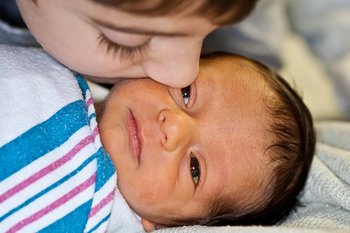Oh Jolly. Guess What the Endocrine Society Has Spouted This Time?
“A great deal of intelligence can be invested in ignorance when the need for illusion is deep.” Â ~Saul Bellow
On April 1st, 2016 (which is April Fools Day–how appropriate), out comes an article in the Journal of Clinical Endocrinology and Metabolism which presents the latest updated position statement of the Endocrine Society, titled Compounded Bioidentical Hormones in Endocrinology Practice: An Endocrine Society Scientific Statement.
In other words, their last position statement on certain compounded medications came out in 2006, and this one trumps that one. And the implication is towards “increased regulatory oversight of all bioidentical hormones.”
Sounds innocuous enough, right? Certainly they are trying to be protective of us, right?
First, in case you don’t know much about the Endocrine Society, it’s existence began a century ago and is today the oldest “largest global membership organization representing professionals from the intriguing field of endocrinology.” Members come from 110 countries representing approximately 28,000 members, with 40 percent of them located outside the United States. They include scientists, physicians, educators, nurses and students. And you’d think that a society with such a vast array of members from 110 countries might have some innate wisdom, right?
Gulp.
The first gist of the article is first about compounded sex hormones…and here’s my summary of their position:
- There is no other rationale for compounding your sex hormones other than having an allergy or intolerance.
- Compounded hormones are risky.
- Compounded hormones are dangerous.
- Compounding Pharmacists, who are licensed professionals, are thus dangerous if their product is dangerous.
- Reported successful patient experiences (and their improved lab results) with compounded sex hormones has no validity; only “randomized, double-blind, placebo-controlled trials” have validity.
- Because there are no FDA-approved testosterone preparations for women, it should be completely avoided…so I guess the opposite logic applies?? i.e. that one should embrace FDA-approved medications like statins or the antibiotic Cipro with all their numerous side effects in all-too-many??
- Synthetic estrogen and synthetic progesterone is the way to go.
- Big Pharma products are the way to go.
- Give all your money back to Big Pharma
If you have a subscription to Medscape, here’s a good summary of what the Endocrine Society stated about compounded sex hormones, including DHEA, but I think my summary above says it all.
But here’s where it really gets nauseating for informed thyroid patients
Says the same Endocrine Society, as outlined in the Medscape article above (instead of my interpretation):
- Levothyroxine (LT4) is bioidentical and a highly effective and safe therapy and is the treatment of choice for hypothyroidism. The complex tissue-specific deiodinase system converts T4 to T3 and supplies the proper amount of T3 to each of the body’s tissues according to its requirements.
- Clinicians should evaluate patients with persistent symptoms (despite adequate LT4 therapy) for other causes of their symptoms and encourage patients to engage in healthy lifestyle measures.
- Some of these patients may benefit from combination LT4/LT3 therapy, desiccated thyroid hormone, or compounded thyroid hormone, as long as symptoms and thyroid-stimulating hormone (TSH) (free T4) are monitored carefully.
Oh really??
To the contrary, millions of thyroid patients from the past 50+ years have noted and/or reported on the following while on T4-only:
- Unresolved or accumulating problems like depression, adrenal stress, anxiety, easy weight gain, difficulty losing weight, easy fatigue, poor stamina, easy sickness/slow recovery, joint pain, painful feet, hair loss, dry skin, rising cholesterol, rising blood pressure, heart problems, kidney problems, other mental health issues, and hundreds more as reported here.
- A poor conversion of T4 to T3 due to a myriad of real biological and normal life events which can negatively affect that deiodinase conversion of T4 to T3, such as aging, the normal stress of life circumstances, inflammation, low iron, and just plain bad genetics, to name a few. The body is not meant to live for conversion alone!
- Lousy outcomes from being held hostage to the dubious “normal TSH lab range” are rampant. The TSH is a pituitary hormone and can never discern if all our tissues and organs are getting enough thyroid hormone from conversion alone.
So all of you who are esteemed members of the Endocrine Society, we as informed thyroid patients who live in our own bodies and have our own intelligence and wisdom, Â challenge you to consider the following questions:
- Can you really call T4-only “effective and safe” in light of the myriad of continued hypothyroid symptoms that patients have noted or reported for 50+ years while on Synthroid, levothyroxine, Tirosent or any other brand of T4-only…sooner or later?
- In light of the fact that T4-only results in numerous organic and tissue problems like depression, a low metabolism, joint pain, high blood pressure, rising cholesterol and so much more…does it really meet the body tissues requirements?
- If T4-only meets all the body’s tissue requirements, why does nature cause a healthy thyroid to give not just T4, but also direct T3 and calcitonin?
- If all those continued and persistent hypothyroid symptoms on Levothyroxine are due to “other causes” or “unhealthy lifestyle choices”, why in the world do these same individuals see them all go away when they get on Natural Desiccated Thyroid and find their optimal dose (which has nothing to do with the TSH)??
- Why is it that when patients are held hostage to the dubious TSH range, they continue to have clear and/or rising hypothyroid symptoms?
– Have you Liked the Stop the Thyroid Madness Facebook page? It gives you daily inspiration and informative information based on years of thyroid patient experiences and wisdom as record on the Mothership of Thyroid Patient Experiences: STTM!
– You can comment to the Endocrine Society as to their views right on their own Facebook page: https://www.facebook.com/EndocrineSociety/
– Check out this video by Hugh Melnick MD about the superiority of NDT over synthetic T4:Â https://www.youtube.com/watch?v=muorjvQ4DUE
– Share this blog post below. Let’s spread the word about this!


